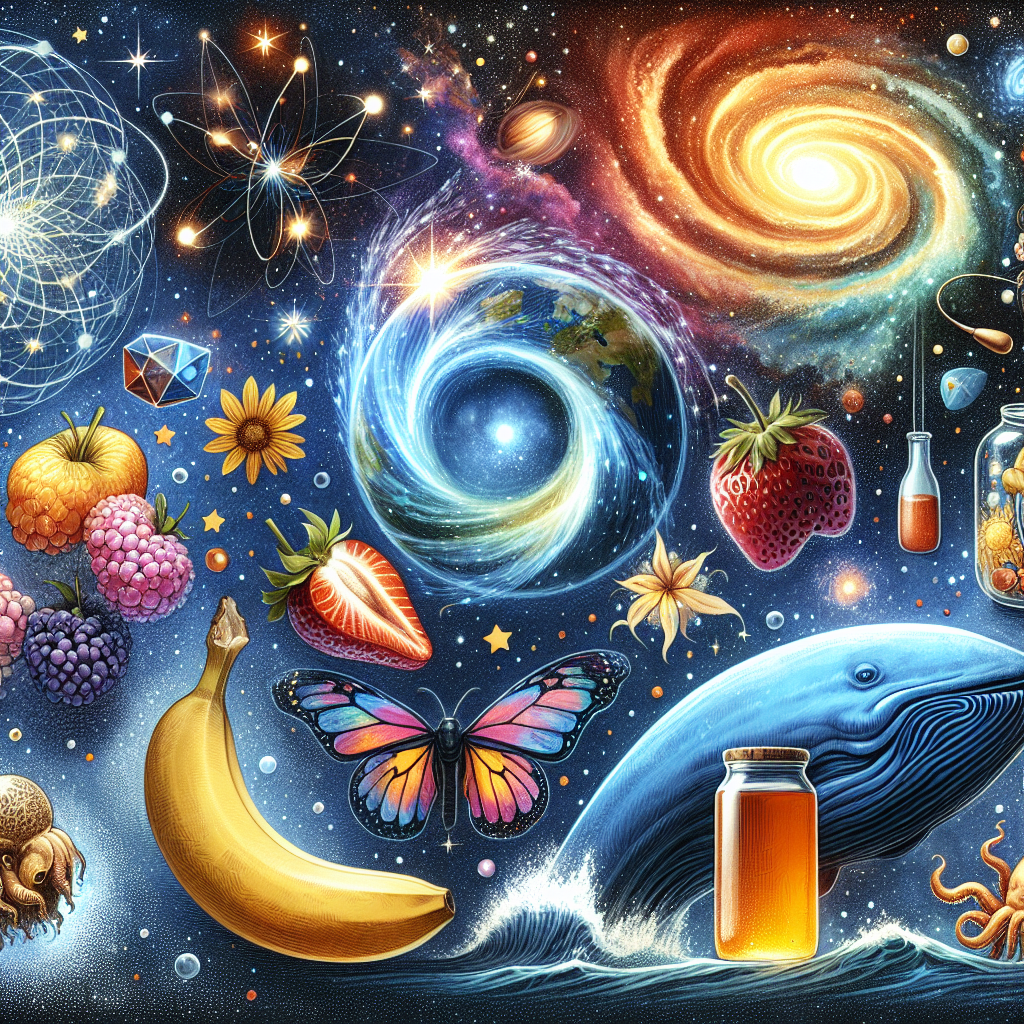10 Mind-Blowing Science Facts That Will Change How You See the World

Science is full of amazing discoveries that reveal the intricate workings of our universe and ourselves. From the tiniest particles to the vastness of cosmos, the realm of science offers a treasure trove of surprising insights. Here, we explore ten incredible science facts that might just leave you scratching your head in wonder and inspire you to learn more!
1. Your Body Contains Star Dust
Did you know that the elements that make up your body were forged in the hearts of stars? When stars explode in supernovae, they scatter these elements across the universe. Eventually, this cosmic material found its way to Earth and into you! So next time you look up at the night sky, remember: you are literally made of star stuff.
2. Bananas Are Berries, While Strawberries Aren't
This might sound like a riddle, but scientifically, it’s true! In botanical terms, a berry is a fruit produced from the ovary of a single flower with seeds embedded in the flesh. That makes bananas qualify as berries. On the other hand, strawberries come from a flower with multiple ovaries, which means they don’t fit the berry category. Who knew fruits could have such complicated identities?
3. Time Dilation: The Closer You Are to a Black Hole, the Slower Time Moves
According to Einstein’s theory of relativity, time is not a constant. The stronger the gravitational field you are in, the slower time passes. This means that if you were to orbit a black hole, you could experience time at a different rate compared to someone far away. It’s as if you could age more slowly just by changing your postal code in the universe!
4. Tardigrades: The Almost Invincible Micro Animals
Tardigrades, often called water bears, can survive extreme conditions that would be lethal to most forms of life. They can withstand temperatures from just above absolute zero to over 300 degrees Fahrenheit, endure pressures six times greater than that found in the deepest ocean trenches, and even survive in the vacuum of space! They remind us there's much more to life than we can see.
5. Octopuses Have Three Hearts
Octopuses are fascinating creatures with a unique anatomy. They have three hearts: two pump blood to the gills, where it gets oxygen, while the third pumps it to the rest of the body. When an octopus swims, the heart that delivers blood to its body stops beating, which is why these creatures prefer to crawl rather than swim; it’s less tiring!
6. The Sound of a Blue Whale is the Loudest of Any Animal
Blue whales are the largest animals to have ever lived on Earth, and they produce sounds that can reach up to 188 decibels. That’s louder than a jet engine! These low-frequency calls can be heard up to 1,000 miles away underwater. Their songs play a crucial role in communication and navigation across vast ocean distances.
7. The Earth Isn’t a Perfect Sphere
While we often think of Earth as a perfect globe, it’s actually an oblate spheroid. This means it’s slightly flattened at the poles and bulging at the equator due to its rotation. As a result, the distance from the Earth’s center to the equator is about 26 miles greater than the distance to the poles. Earth's ‘squished’ shape has fascinating implications on geography and gravity!
8. Your Brain Generates Enough Electricity to Power a Small Bulb
Imagine this: your brain produces enough electricity to power a small light bulb! At rest, your brain creates about 20 watts of electrical power. This energy is used for all its functions, from thinking and memory retrieval to coordinating movements. It’s a testament to how complex and powerful our minds are, even when we’re just sitting still!
9. Honey Never Spoils
Archaeologists have found pots of honey in ancient Egyptian tombs that are over 3,000 years old and still perfectly edible! Honey has unique properties, including low moisture content and high acidity, which prevent bacteria from growing. So, if you have a jar of honey sitting in your pantry, you can be confident it won’t spoil!
10. The Universe is Expanding Faster Than Expected
Recent studies have shown that the universe’s expansion is accelerating. This unexpected discovery led to the concept of dark energy, which is thought to make up about 70% of the universe. Knowing that the cosmos is continuously expanding raises profound questions about its future and our place in it. Are we just tiny specks in an ever-stretching fabric of existence?
These science facts not only amuse but also encourage further inquiry into the natural world. Each of these revelations reminds us of the staggering complexity of our universe and the joy of discovering how much more there is to learn. So, the next time you're faced with a question, remember — science holds the answers wrapped in wonder and curiosity!